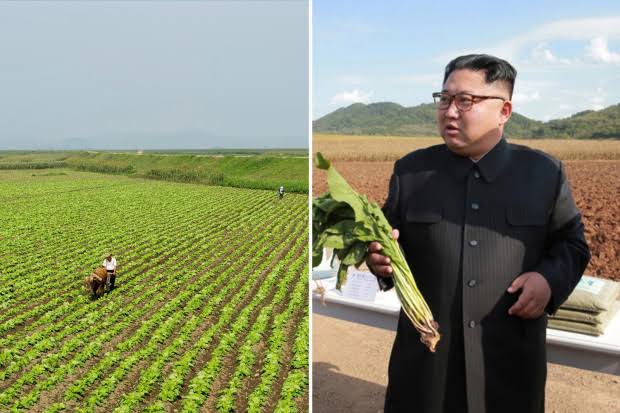The current corona pandemic affected the best of the best nation’s economy to collapse in a blink. We saw many nations openly conveying how corona has affected their nation’s economy. Now North Korea too admits their economical issue, but North Korea is known to be the most isolated country and also it is one of the first countries to totally restrict borderline with China are any other Corona infected countries. Then how it got affected by the pandemic, let’s find out.
A dramatic rise in the prices of food commodities has been seen in North Korea in the past few months. According to NK News a kg of bananas costs Rs 3,336. Similarly, the price of a packet of black tea has shot up to Rs 5,167 and that of coffee to more than over 7,381, approximately. Also a kg of corn is sold at Rs 204.81 in the country. This rise is primarily due to the shortage of food in that country.
One of the major reasons for this acute food shortage is the restriction of imports by closing borders at the very dawn of COVID-19 pandemic. Also even recent extensive floods played its role.
North Korea depends on China for food, fertilizer and even fuel, but because of the restrictions they imposed, the import came down to $500 million from $2.5 billion, according to the survey of Chinese customs data.
In fact, The situation is so bad that the country reportedly asks for 2 litres of urine from the farmer every day for the production of fertilizers.
“The people’s food situation is now getting tense,” Kim Jong-un said during a recent meeting with the central committee of the ruling Workers’ Party. He directed party leaders to concentrate on resolving food shortages saying the “agricultural sector failed to fulfil its grain production plan,” according to the state-media report.
The seriousness of this issue came to light when Kim Jong-un was reported to have asked officials and people to “wage another, more difficult ‘Arduous March'”.
Arduous March, also known as the ‘March of starvation’ which caused death toll vary widely in 1990s. It is said that about 3.5 million people lost their lives due to hunger and hunger-related illnesses. The cause for this Arduous March is due to the collapse of the USSR, hence failing to get necessary aid from them, also due to flooding and lack of inflexibility in the government. And by using the same word, the scale of shortage in food can be felt.
The COVID restrictions are not helping their situation since the food aid organisations are being powerless due to these restrictions. The closed borders prevent even the donor nation from providing necessary aid. According to the United Nations’ Food and Agriculture Organisation, North Korea is short of about 8,60,000 tonnes of food.
However, North Korea has claimed a 25 percent rise in the industry output this year. Showing that the nation progressed in industry and failed in progress of wants necessary.

